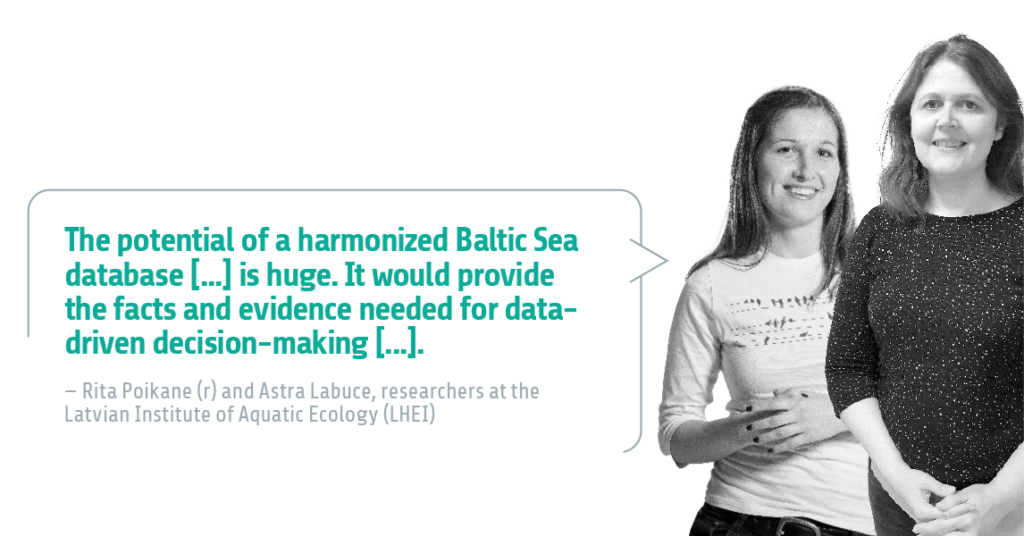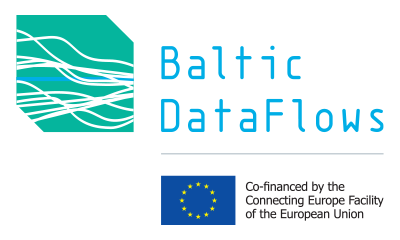
Rita Poikane and Astra Labuce are researchers at the Latvian Institute of Aquatic Ecology (LHEI), an agency of the Daugavpils University, Latvia. In the Baltic Data Flows project, LHEI is involved in the activities 1, 5 and 6.
What is the current situation on Baltic Sea environmental data? Strengths? Challenges?
The Baltic Sea is extensively explored sea. Every country on the Baltic Sea coast has an existing and ongoing monitoring programme. We have data about all the subbasins, covering long periods. Nowadays, mainly due to the technological improvement and general awareness of natural and human induced processes, more and more countries are starting to gather environmental data from different regions of the Baltic Sea. However, only a small part of the data is used for a pan-Baltic analysis carried out in a harmonized and unified way. Most often, data is stored and utilized locally. The potential of a harmonized Baltic Sea database that comprises all the data available in the region is huge. It would provide the facts and evidence needed for data-driven decision-making regarding Baltic Sea management policies.
How can data help support our response to the environmental challenges faced by the Baltic Sea?
Environmental data describes linkages between processes within the ecosystem. Identification of the linkages provides an opportunity to recognize impacting factors – a crucial step for effective and targeted policy making. The trend reversal of the Baltic Sea nutrient loads is an excellent example of how evidence-based policy-driven management can have the intended result for improving the ecosystem. More data gives us the opportunity to conduct more thorough analyses, notably about the physical, chemical, biological processes in the Baltic Sea. It provides the fundamentals for more relevant conclusions and decision making in the future.
What do you expect from the Baltic Data Flows project? For LHEI in particular? For the region in general?
The Baltic Data Flows project will improve the data availability and data reporting in the Baltic Sea region. The data will be translated to harmonised formats best suited to meet the needs of environmental assessments and applied indicators. In particular, the Latvian Institute of Aquatic Ecology (LHEI) will gain an open and user-friendly marine monitoring database that will allow for faster response for national and international environmental assessments.
